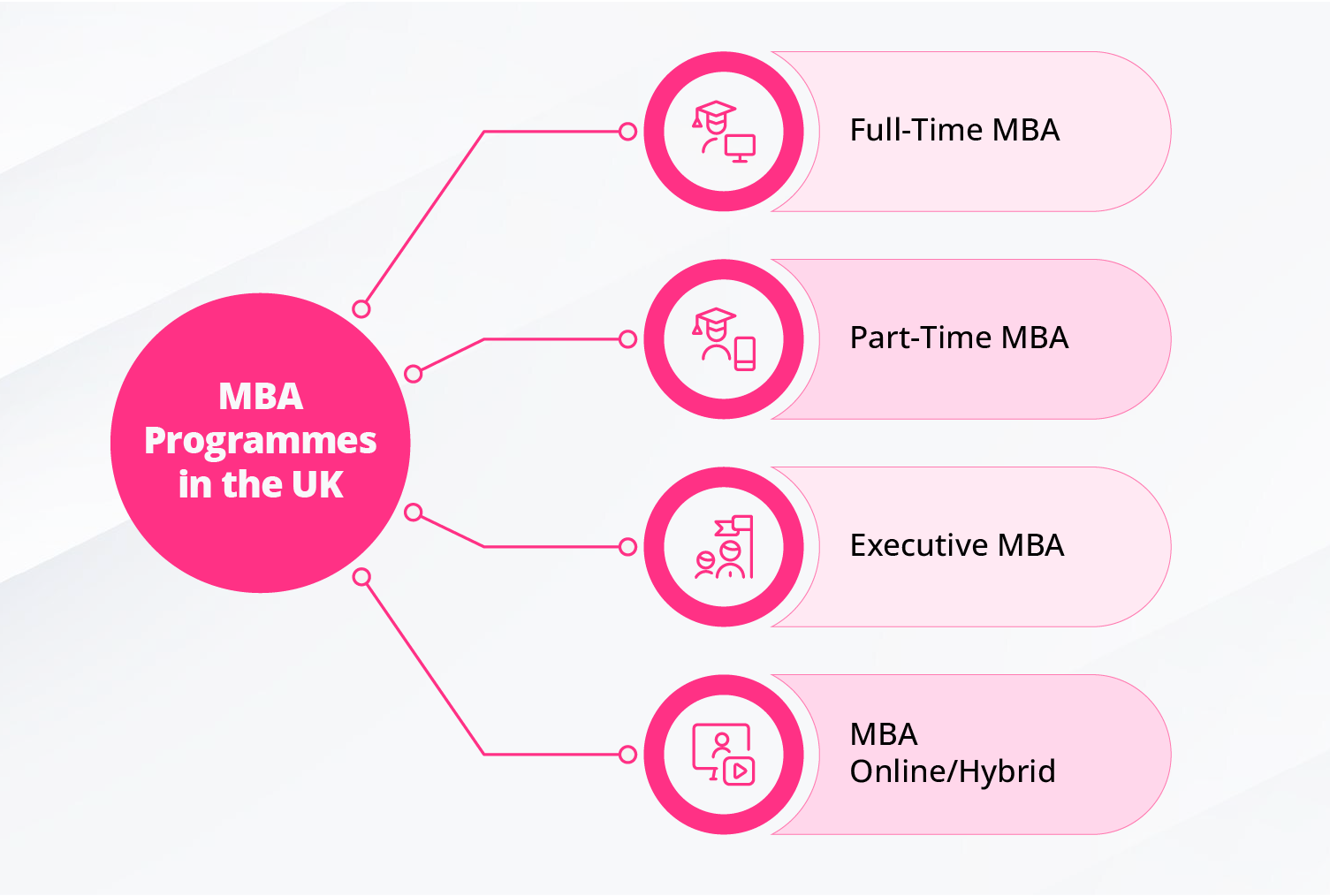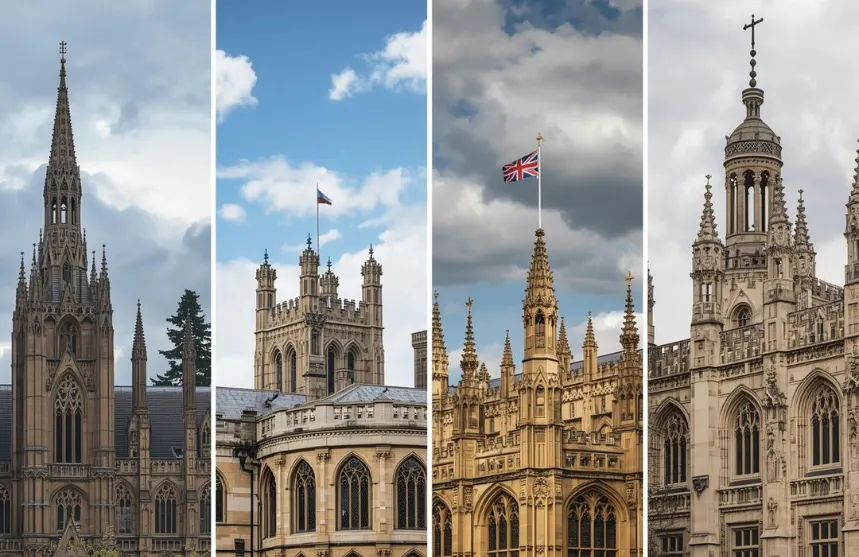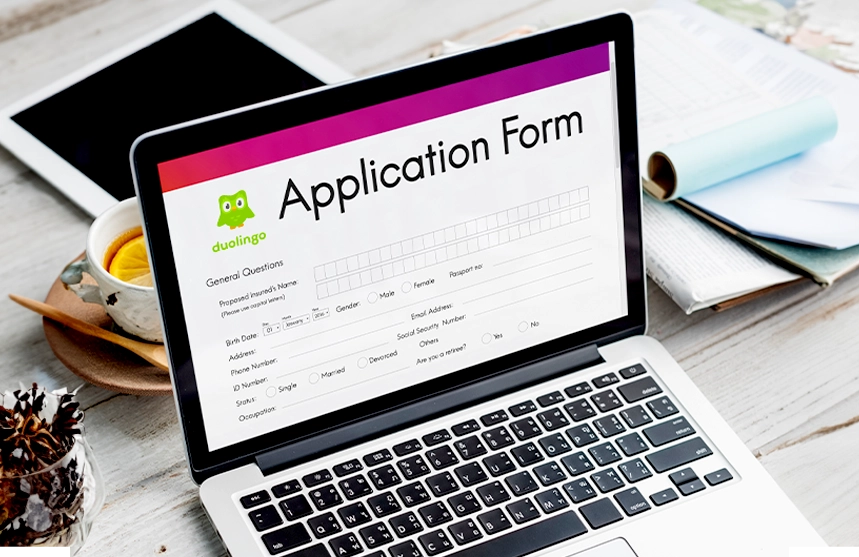Hidden Facts to Know Before You Decide to Study in UK in 2026
Study MBA in UK: Everything You Need to Know

The UK has long been a favourite of international students. However, in the case of MBA programmes, the lure is even greater. Thousands of professionals decide to pursue an MBA in the UK every year due to its international reputation, reduced course duration, and excellent career prospects. The UK can offer opportunities tailored to your aspirations, whether you are a professional aiming to become a leader, an entrepreneur seeking to grow your business, or someone wishing to change careers.
This guide has provided you with a road map of the entire process of Studying an MBA in the UK: application tips, job opportunities, fees, scholarships, and eligibility criteria. It has been structured to respond to real student queries such as: Is an MBA in the UK worth it? How much does an MBA Cost in the UK For an Indian Student? Can I do an MBA in the UK without GMAT?
Key Highlights of Studying MBA in the UK
Students are advised to check out the latest information about studying in the UK mentioned below:
| Aspect | Details |
|---|---|
| Program Duration | Typically 1 year (full-time); some programs offer 18–24 months |
| Scholarships | Chevening, Commonwealth, University-specific awards (up to 100% tuition coverage) |
| Eligibility | Bachelor’s degree, 2–3 years of work experience, English proficiency (IELTS/TOEFL), GMAT/GRE (varies) |
| Popular Specialisations | Finance, Consulting, Marketing, Entrepreneurship, Healthcare, Tech Management |
| Post-Study Work Options | Graduate Route visa (2 years stay-back for international students) |
| Average Salary After MBA | £60,000 – £90,000 annually, with top schools exceeding £100,000 |
| Intakes | September, January |
Why Study an MBA in the UK?
The UK has established itself as one of the best MBA Destinations in the World. Here’s why:
Internationally Accepted Degree – A UK MBA is recognised globally, providing graduates with a significant advantage in international labour markets.
- One-Year MBA Courses – Unlike the USA, where MBA courses span two years, most UK MBAs are intensive one-year programmes, saving both time and tuition costs.
- Strong Industry Relationships – UK business schools maintain close ties with international companies, enabling students to gain practical exposure, internships, and direct recruitment opportunities.
- Extensive Specialisations – A wide variety of courses are available, including finance, consulting, healthcare, and technology-driven MBAs, allowing students to select one aligned with their career goals.
- Post-Study Work Opportunities – International students can extend their stay in the UK for up to two years after completing their MBA to gain valuable work experience through the Graduate Route visa.
- Multicultural Student Community – Studying in the UK means learning in a multicultural environment, engaging with students from across the globe, and building lifelong professional networks.
- Excellent ROI and Career Development – UK MBA graduates are often rewarded with high-paying jobs in finance, consulting, and management, ensuring a strong return on investment.
MBA Programmes in the UK
When researching MBAs, you will encounter a range of programme formats. Choosing the right one depends on your career stage and desired flexibility.
- Full-Time MBA – Best suited for individuals willing to pause their careers and focus entirely on studies. Typically lasts 12–18 months.
- Part-Time MBA – Ideal for applicants who want to continue working while studying. Classes are usually held in the evenings or at weekends.
- Executive MBA (EMBA) – Designed for senior managers and executives with 7–10+ years of experience, with a focus on advanced leadership development.
- Online/Hybrid MBA – Increasingly popular among students who want the flexibility of online learning, while retaining the option of occasional on-campus sessions.
Eligibility Criteria of MBA in the UK
Eligibility criteria has been a variable feature among universities; however, the majority of schools share common expectations:
- Academic Qualification: A bachelor’s degree from a recognised institution. Typically, a 2:1 or equivalent is desired. In some schools, three-year bachelor degrees are accepted (popular in India).
- Work Experience: Most MBAs in the UK typically require at least 2–3 years of full-time work experience. Depending on the programme, 5+ years can be preferred, especially for executive or specialised MBAs.
- GMAT/GRE: GMAT/GRE is not necessarily mandatory in many UK universities. Nevertheless, a good score strengthens your application, particularly in elite schools.
- English Proficiency Tests: IELTS (6.5–7.0), TOEFL (90–100), or PTE (approximately 60). This requirement is waived in some universities if you attended an English-medium course.
Other Documents: A strong Statement of Purpose (SOP), Letters of Recommendation (LORs), CV, and occasionally an interview.
| Requirement | Details |
|---|---|
| Academic | Bachelor’s degree (2:1 or equivalent) |
| Work Experience | 2–3 years minimum |
| GRE/GMAT | Often optional, but recommended |
| English Proficiency | SOP, LORs, CV, interview |
Scholarships to Study MBA in the UK
While pursuing an MBA might be a significant investment, it is encouraging to note that international students in the UK have access to numerous scholarships, bursaries, and other forms of financial support. These not only lower the financial barrier but also make studying in the UK more affordable for deserving applicants.
Several business schools also offer partial or full tuition fee waivers to exceptional students, particularly those with a strong academic background or relevant work experience.
Some of the most popular MBA Scholarships in the UK include:
- Chevening Scholarships – Funded by the UK government, these scholarships cover tuition fees, living expenses, and other costs, making them highly sought after by international students.
- Commonwealth Scholarships – Provided to students from Commonwealth countries, these fully funded scholarships cover tuition fees, travel, and living expenses.
- University-Specific Scholarships – London Business School, Warwick Business School, and Manchester Alliance, among others, offer their own MBA scholarships, which may cover 50–100% of tuition fees.
- Private and Corporate Scholarships – Organisations and companies sometimes provide financial support to MBA students, particularly those with prior work experience in relevant industries.
ROI After Studying MBA in the UK
Students often ask: Is an MBA in the UK worth it? The answer depends on how you leverage the degree.
The average post-graduation salary of graduates from elite schools such as LBS, Oxford, or Cambridge can range from £70,000 to £120,000, particularly in consulting, finance, and technology.
Mid-tier schools may lead to salaries between £40,000 and £70,000, depending on previous experience and industry.
Shorter programme durations reduce opportunity costs, making ROI faster compared with two-year MBAs in other countries.
An MBA in the UK also opens doors to global opportunities, meaning you are not limited to the UK job market alone.
UK MBA Application
The application process for an MBA in the UK is straightforward but requires careful planning. Here is the stepwise process:
Research & Shortlist: Compare universities based on cost, ranking, location, and specialisation.
- Make Test Preparations: Book IELTS/TOEFL (and GMAT, if required).
- Gather Paperwork: Collect degree transcripts, CV, SOP, and recommendation letters.
- Apply Online: Submit applications via the university portal and pay the relevant fees.
- Interview: If shortlisted, prepare for an interview.
- Find Accommodation and Visa: Once accepted, apply for a UK Student Visa.
- Plan Pre-departure: Arrange accommodation, finances, and travel.
Conclusion
An MBA in the UK is not just a degree but an investment in global exposure, leadership skills, and a rewarding career. The UK offers world-class universities, industry-focused courses, and opportunities to connect with professionals globally. The one-year programme design, combined with post-study work opportunities, makes it time-efficient and financially feasible compared with other countries.
Although expenses may be high, the availability of scholarships, financial aid, and the strong ROI, as evidenced by international career prospects makes the investment worthwhile. UK MBA graduates regularly secure top positions in consulting, finance, entrepreneurship, and technology, demonstrating the long-term value of the degree.
When planning to pursue an MBA in the UK, the process can feel overwhelming, from shortlisting universities to preparing SOPs, meeting visa requirements, and applying for scholarships. This is where MetaApply IE comes in. On our AI-powered platform, you can explore top UK universities, compare MBA courses, check your eligibility in minutes, and apply seamlessly through a single interface.
Frequently Asked Questions
Yes, many universities waive GMAT requirements, especially if you have strong work experience.
On average, ₹30–70 lakhs including tuition and living expenses, depending on the university.
Finance, Consulting, Entrepreneurship, Technology Management, and Sustainability are among the most in-demand.
Yes, most MBAs require 2–3 years of work experience. Executive MBAs need more.
Absolutely; if you choose the right programme, plan finances, and leverage the UK’s strong networks and career opportunities.



















































